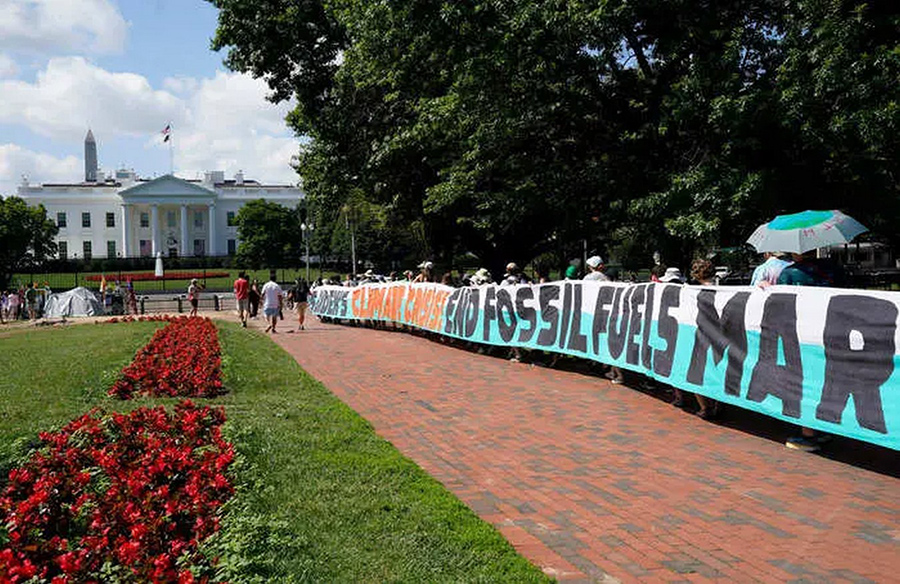
President Joe Biden has recently underscored the importance of climate-focused employment initiatives, aiming to address both environmental concerns and economic opportunities. With a particular emphasis on engaging young voters and tackling the green-skills gap, Biden’s proposed American Climate Corps program seeks to hire thousands of workers and cultivate a workforce dedicated to environmental stewardship and sustainability.
Expanding the American Climate Corps
In his State of the Union address, President Biden expressed his intention to bolster the American Climate Corps, drawing inspiration from historic New Deal-era initiatives that employed millions to preserve natural landscapes. The proposed expansion includes a budget request of $8 billion to Congress, aiming to scale up the program to accommodate 50,000 workers over the next decade. Initial plans entail launching the American Climate Corps this summer, with approximately 20,000 workers slated for recruitment, although funding sources span multiple federal agencies.
Addressing Climate Concerns and Green-Skills Gap
Biden’s push for climate-focused employment initiatives aligns with efforts to secure support from environmentally conscious voters, particularly young demographics. Concerns over the climate crisis, coupled with the imperative to bridge the green-skills gap, drive the administration’s commitment to creating jobs that mitigate greenhouse-gas emissions, enhance community resilience, and promote environmental conservation.
Pathway to Sustainable Careers
Trevor Dolan, representing Evergreen Action, anticipates that the American Climate Corps will serve as a gateway to well-compensated careers, offering living wages, benefits, and educational incentives. While specific job roles are yet to be defined, the program aims to prioritize activities such as waterway conservation, renewable energy deployment, disaster preparedness, and community engagement on climate issues. Moreover, there is a proposal to establish pre-apprenticeship positions in collaboration with trade unions, facilitating skill development in alignment with the transition to a low-carbon economy.
Addressing Workforce Shortages and Skill Mismatch
The initiative responds to critical workforce shortages in key sectors essential for achieving sustainability goals. Shortages of skilled workers, particularly in trades like electricians, hinder the widespread adoption of renewable energy infrastructure and energy-efficient technologies. By offering training opportunities and apprenticeships, the American Climate Corps seeks to equip workers with the expertise needed to support the transition to cleaner energy systems.
Advocating for Permanent Funding and Community-Centric Approaches
While the launch of the American Climate Corps marks a significant milestone, advocacy groups like the Sunrise Movement emphasize the need for sustained funding and community-centric approaches. Ensuring that job opportunities are accessible to communities disproportionately impacted by fossil fuel-related activities remains a priority. However, the program’s prospects for securing additional funding face political hurdles, with opposition from some congressional factions posing challenges to its long-term viability.
Outlook and Electoral Implications
Despite potential obstacles, proponents of the American Climate Corps remain optimistic about its impact, viewing it as a catalyst for youth engagement and voter mobilization. As the program unfolds, its ability to generate employment opportunities, address environmental concerns, and resonate with voters may influence electoral dynamics, particularly among young demographics with heightened environmental consciousness.
In conclusion, Biden’s climate jobs initiative represents a multifaceted approach to addressing environmental and economic imperatives, underscoring the intersection of sustainability, employment, and political engagement in shaping the future of the workforce and the planet.




Leave a Reply